
The
Professional
Lives and Works in
Geneva, Switzerland
Danaé Panchaud is a Swiss exhibition curator, museologist and lecturer specialising in photography. She has been the director of the Centre de la photographie Genève since 2022, after serving from 2018 to 2021 as director and curator of the Photoforum Pasquart in Biel, Switzerland. She trained in photography at the Vevey School of Photography before completing a bachelor’s degree in visual arts with a specialisation in curatorial practices at Geneva University of Art and Design. She later studied museology at Birkbeck, University of London, earning a master’s degree in 2017. She has held positions in several Swiss institutions in the fields of contemporary art, design and science, including the Centre d’Art Contemporain Genève, where she was a research associate from 2007 to 2012, the Gallery SAKS in Geneva in 2012-2013, the Fondation Verdan in Lausanne as scientific collaborator, and the mudac in Lausanne, where she was in charge of the public relations from 2012 to 2017. As a free-lance curator, she has curated exhibitions for several Swiss and international museums, independent spaces and galleries since 2012. She regularly writes texts for monographs of contemporary artists, exhibition catalogues, and thematic publications such as Flora Photographica, co-authored with William Ewing and published by Thames & Hudson in 2022. She was a lecturer at the Vevey School of Photography from 2014 to 2018, and regularly lectures at art and photography schools in Switzerland. In 2023, she joined the teaching faculty of the CAS in Theory and History of Photography at University of Zurich.
Projects
No uploaded projects...
Danaé
was nominated by
Centre de la photographie Genève
in
Show all projects
Each year every member of the FUTURES European Photography Platform nominates a set of artists and projects to become part of the FUTURES network.
Related artists
More artists that you might
like to explore
All artistslike to explore
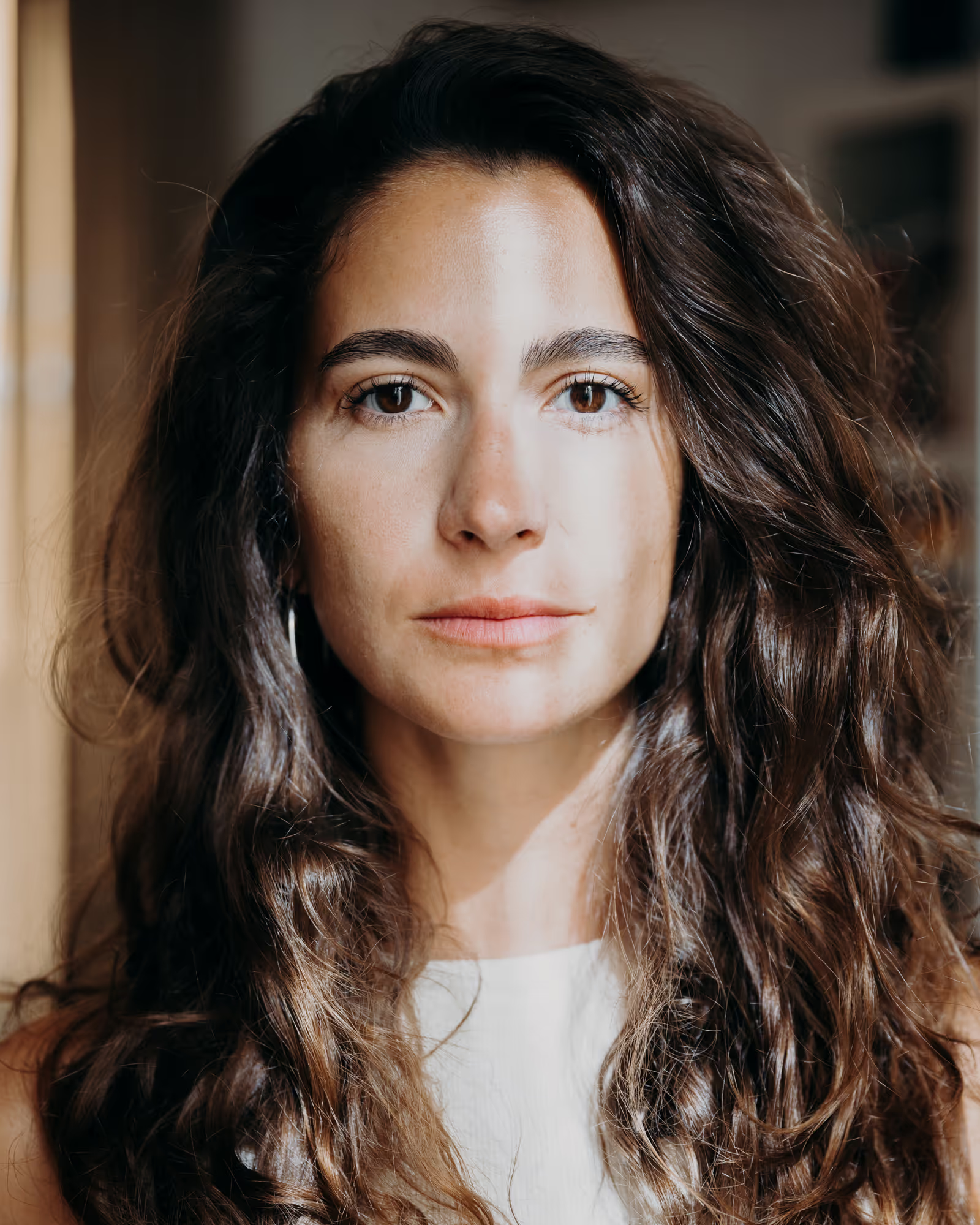
Camilla Ferrari (b. 1992) is a visual artist working with images and video based in Milan, Italy.
Her work blends still and moving images to explore the ambiguity
of perception, the coexistence of dream and reality, the eloquence of silence, and the poetry found in everyday life.
Her portfolio includes features in prominent publications such as National Geographic, The New York Times, Essenziale, NPR, Artsy, and Domus. She is a Canon Ambassador.
In addition to her personal projects and editorial contributions, Camilla has collaborated with commercial clients for special commissions, including names like Apple, Lamborghini, Marcolin, and Sony Music.
In 2021 she was one of the five finalists of the ING Talent Award and in 2020 she was nominated by Camera Torino for Futures Photography, a European Platform focused on amplifying emerging artists in contemporary photography.
In 2019 she was selected by PDN as one of PDN’s 30: New and Emerging Photographers to Watch worldwide and by Artsy as one of the “20 Rising Female Photojournalists”.


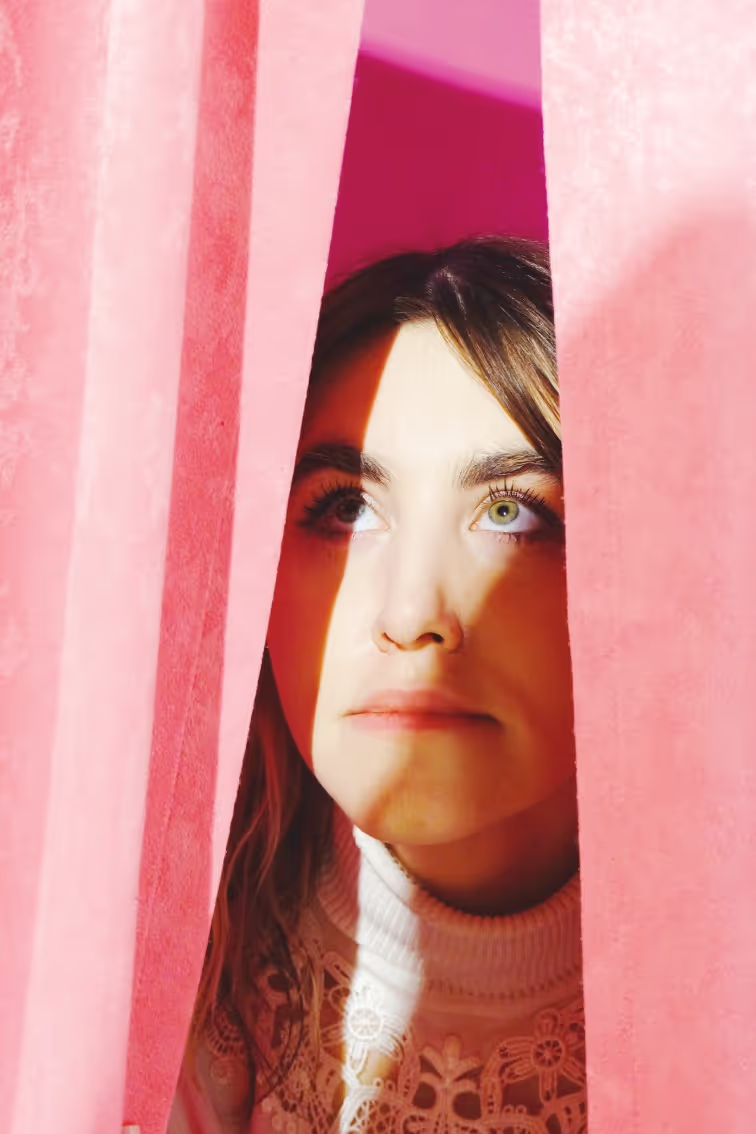
Milena Soporowska is a visual artist based in Poland. Her work explores, among other things, the intertwining of everyday life with magic and the occult, questioning the concept of home as a safe, familiar haven. She is interested in the combination of alternative medicine and psychoanalysis, and the overlap between Christianity, esotericism and folk spirituality.She graduated in Art History, presenting her master's thesis on the influence of spiritualistic and mediumistic photography on art in the light of Freud's category of unheimlich. She also studied photography, museology and psychotronics. Moreover, Milena is a graduate of the Sputnik Photos mentoring programme.Read more


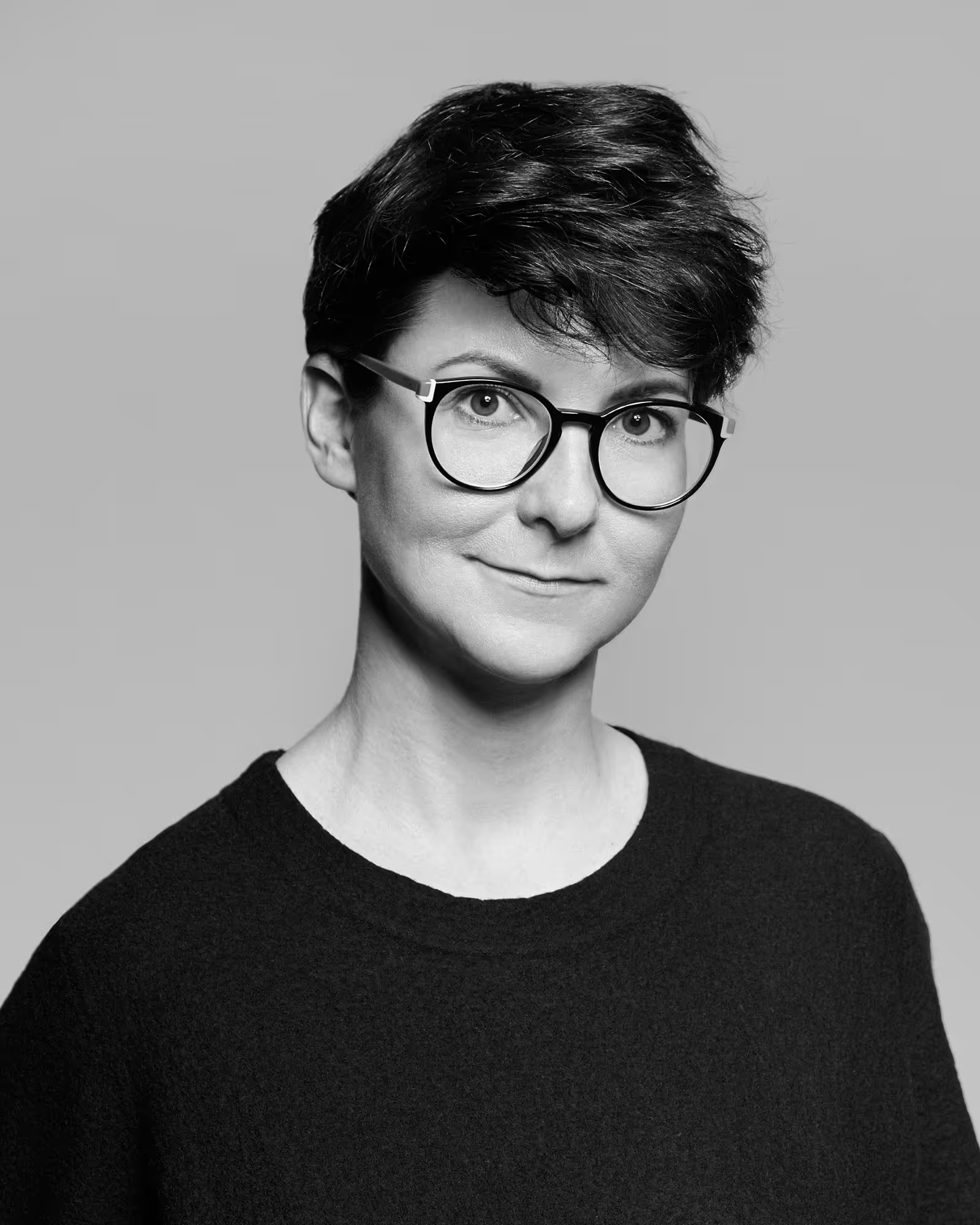
Kristīne Krauze-Slucka is a visual artist based in Riga, Latvia, whose conceptual practice interrogates the materiality of industrially produced objects, transforming them into catalysts for pseudo-social anthropological inquiries that unravel conventional perceptions.
Her approach to photographic image-making transcends the traditional lens, venturing into the realm of meta images and afterimages. By employing experimental, camera-less techniques, she treats the photographic medium not only as a tool for visual representation but as a tactile, sensory and embodied experience that underscores the physical and material processes of creation.
Balancing familiarity with abstraction, her work invites viewers to reconsider the often distorted relationships between man-made materials and the environment, ultimately engaging a sensory dialogue about our perception.
Krauze-Slucka holds a Master’s degree in Fine Arts from the Visual Communication Department of the Latvian Academy of Arts. She was awarded the Grand Prix of the Nordic and Baltic Young Artist Award in 2020 and has been twice nominated for the prestigious Purvītis Prize.
In 2022, she was selected as a FUTURES artist, an honor awarded by the Europe-based photography platform. She also serves as a lecturer at the International Summer School of Photography (ISSP).
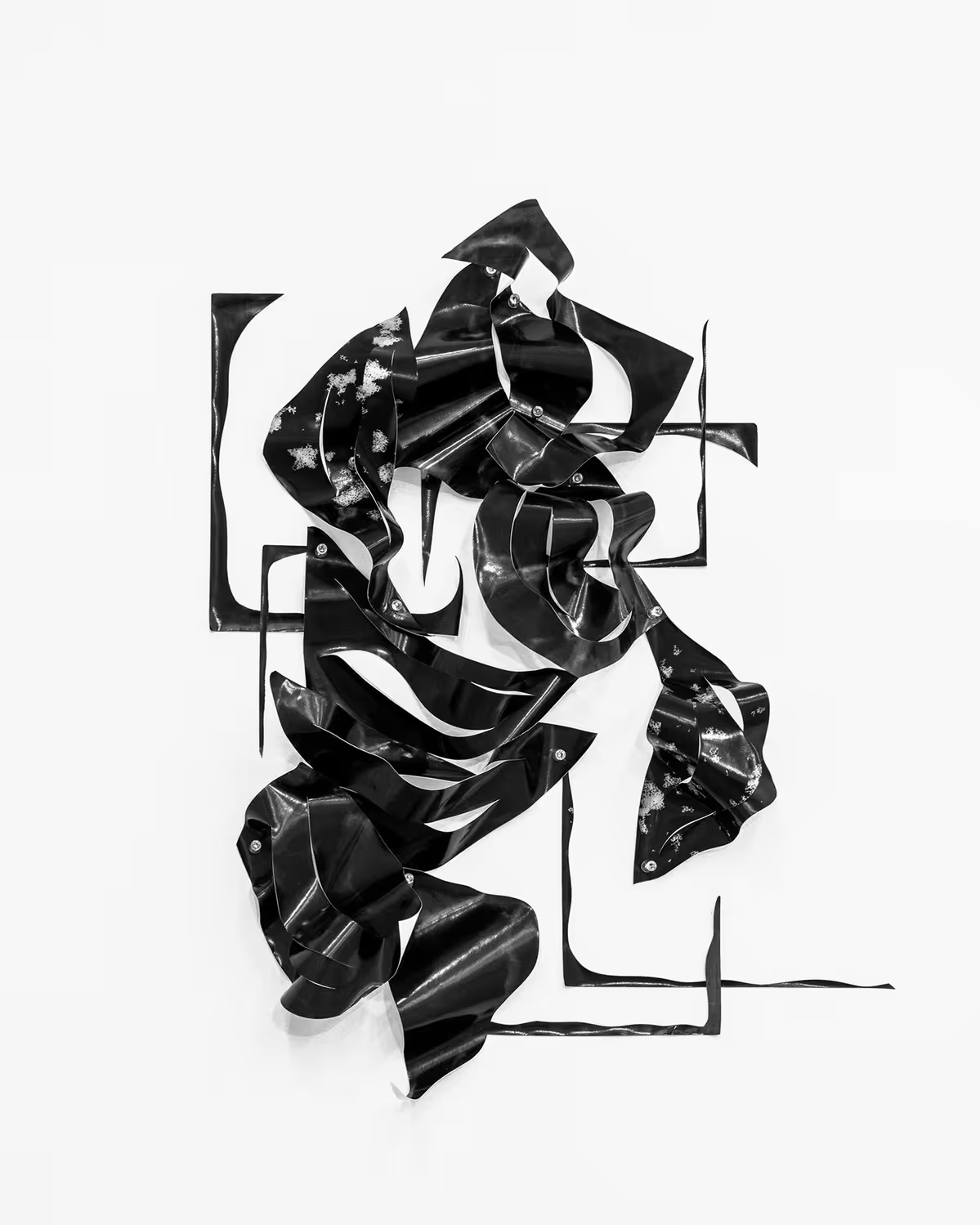

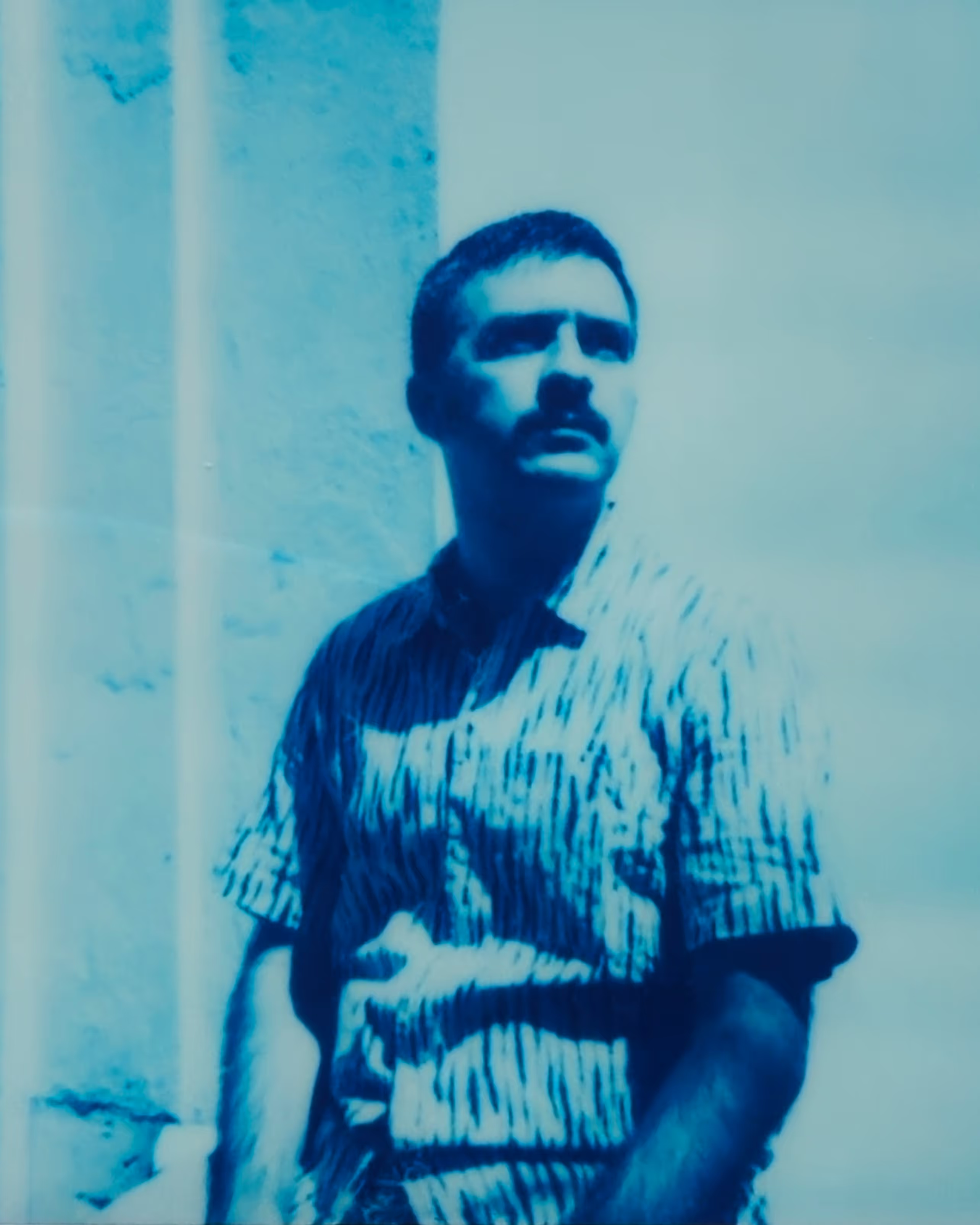
Ilias Lois (b. Athens) is an artist whose work considers the notion of home, life in European urban centers, and the materiality of objects and technologies. His practice pays particular attention to the act of translating the three-dimensional world into two-dimensional surfaces—and the reverse process that may follow. He is especially drawn to photographic sequencing and the possibilities of non-linear storytelling. In the summer of 2024, he earned a Master’s degree in Photography: Research and Methodology from UniWA. He contributes to photography education as a tutor at the Hellenic Centre of Photography and Paper Drop Lab (founder), where he leads project development and experimental curation workshops. He is also an editor at Velvet Eyes, an online photography magazine. On the recommendation of the publishing house Void, he became Future Talent ’24.
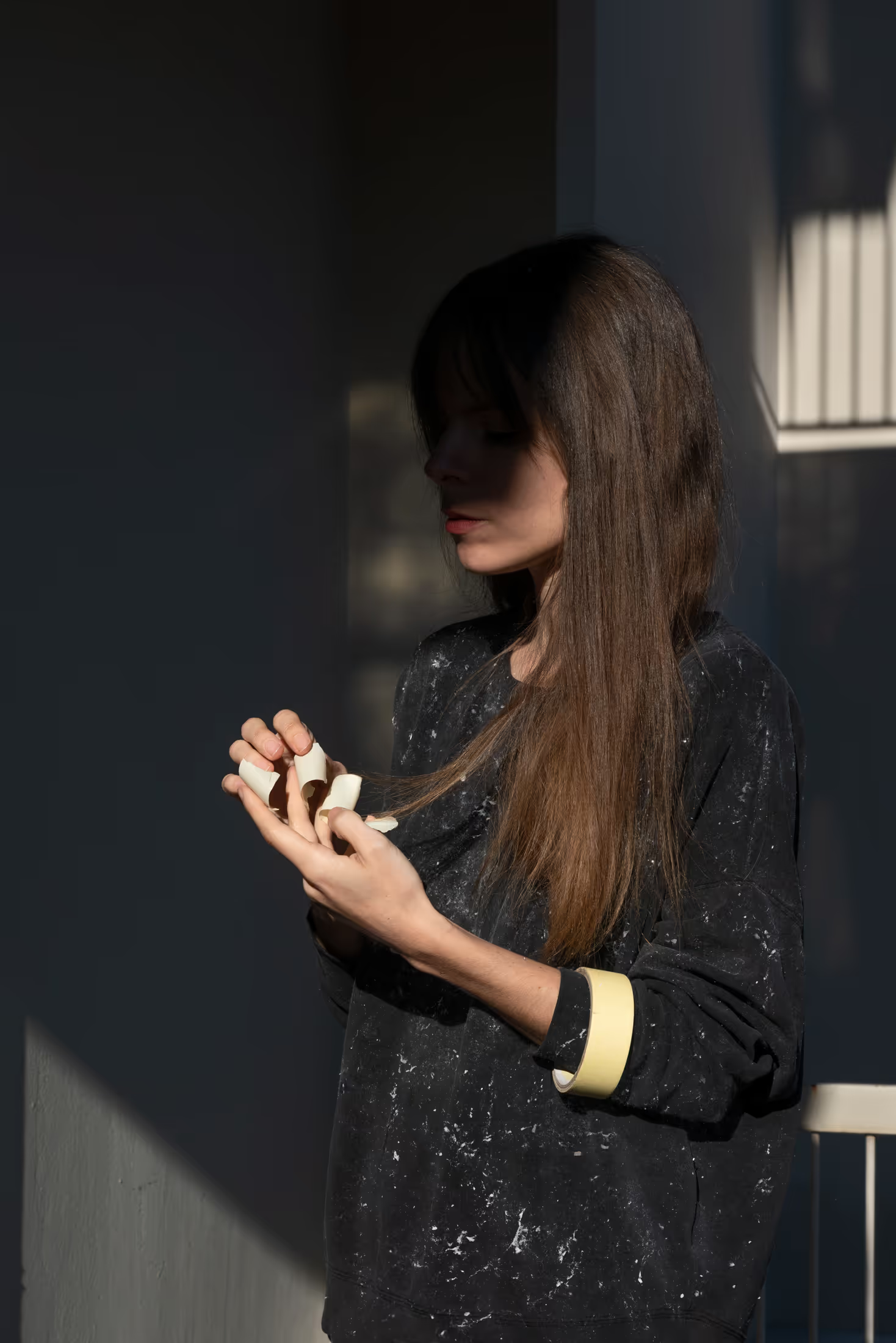
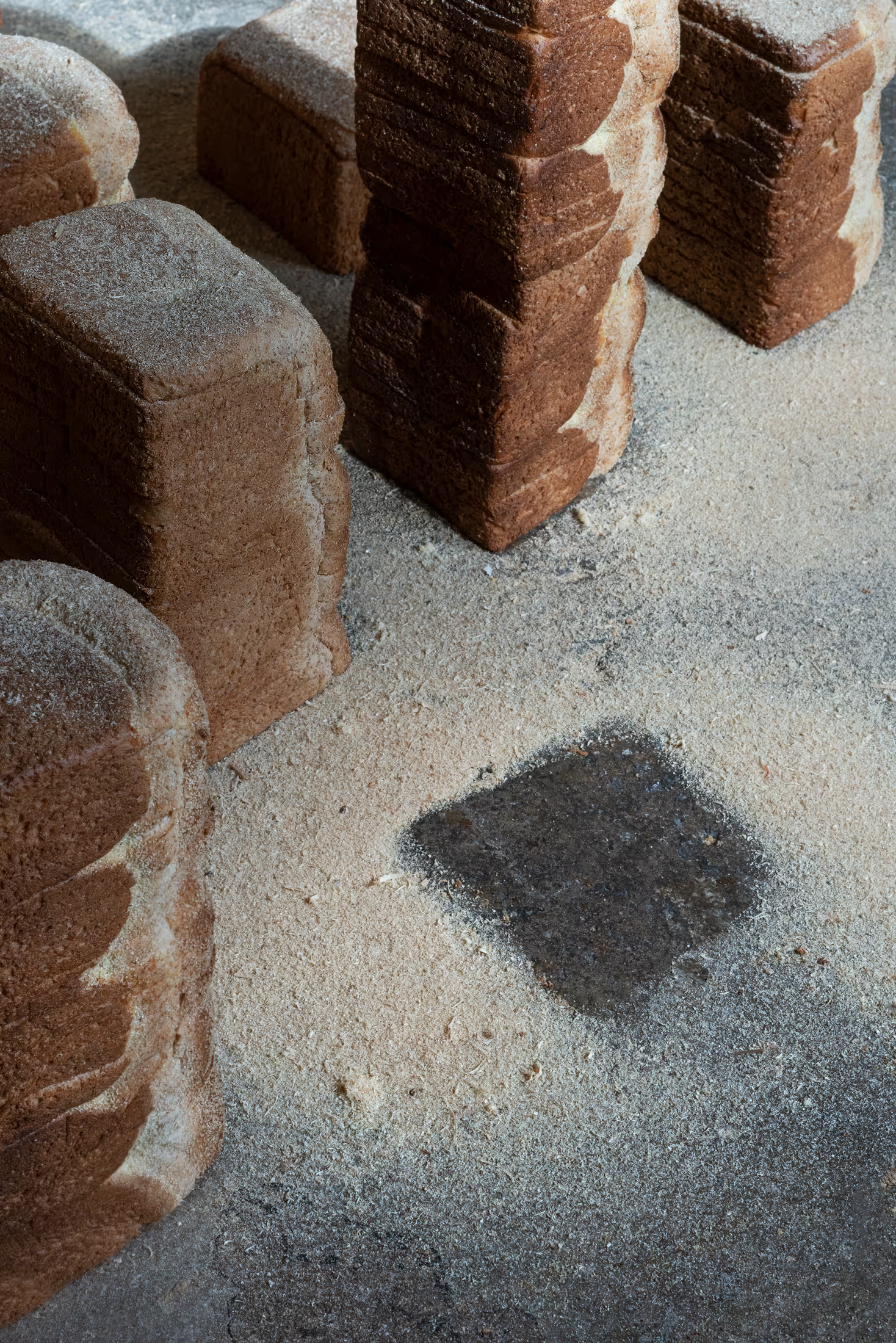
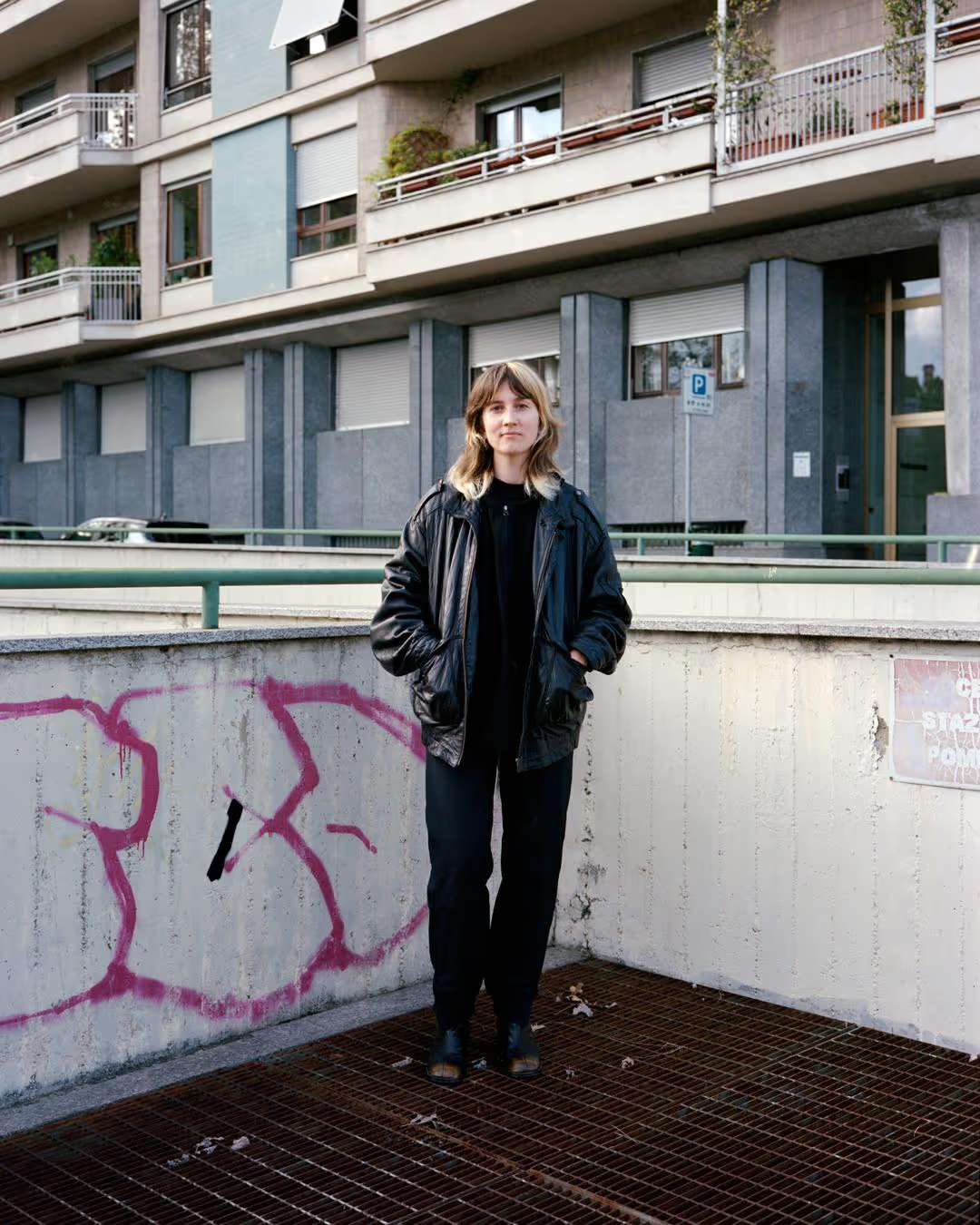
Florine Thiebaud (b. 1992, France) is a photographer based in Marseille.
With a post-documentary practice that combines photography and writing, she places a significant emphasis on publishing. She explores the notions of imprisonment and isolation, the passage of time, loss of control, identity, and her connection to others.
From 2016 to 2019, she developed two projects focused on the consequences of the waiting for papers for exiled people in Greece, placing the relationship with the other at the heart of her practice.The first was the project Exils, which won the Roger de Conynck Prize and was exhibited at the Recylart Gallery in Brussels, followed by Breaking Point. The latter was co-published as a book in May 2022 with Stockmans Art Books, and was exhibited at FOMU in Antwerp and at the Contretype Gallery in Brussels as part of the .TIFF selection and Propositions d’Artistes.
Developing her reflections on notions of imprisonment and isolation and their consequences, she is currently working on a project about families of incarcerated people, Des Ondes (On Waves), based on a personal story. This project has received support from the Fédération Wallonie-Bruxelles, and part of it was already exhibited in 2023 at the Delta Cultural Center in Namur as part of a group exhibition.
In parallel, following confrontations with her own physical and mental limits facing depression, she developped a new series of self-portraits: Revenir (Coming back). Using once again repetitive imagery and a consistent aesthetic, she explores the intersection of vulnerability, isolation, and transformation through self-portraiture. Photographing herself during moments of crisis and depression, she seeks to capture the disconnect between her inner world and reality.
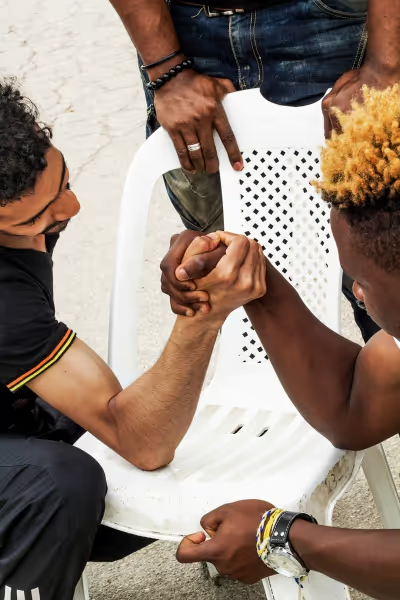
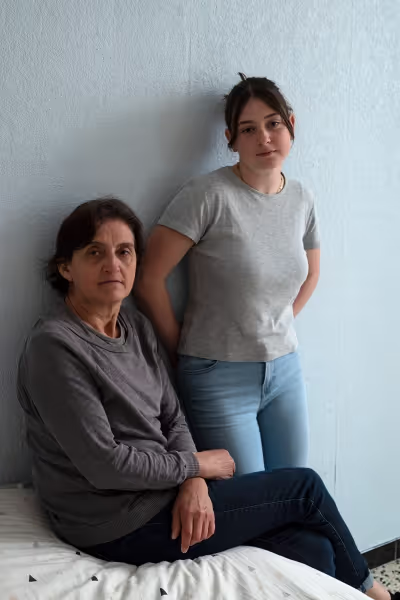
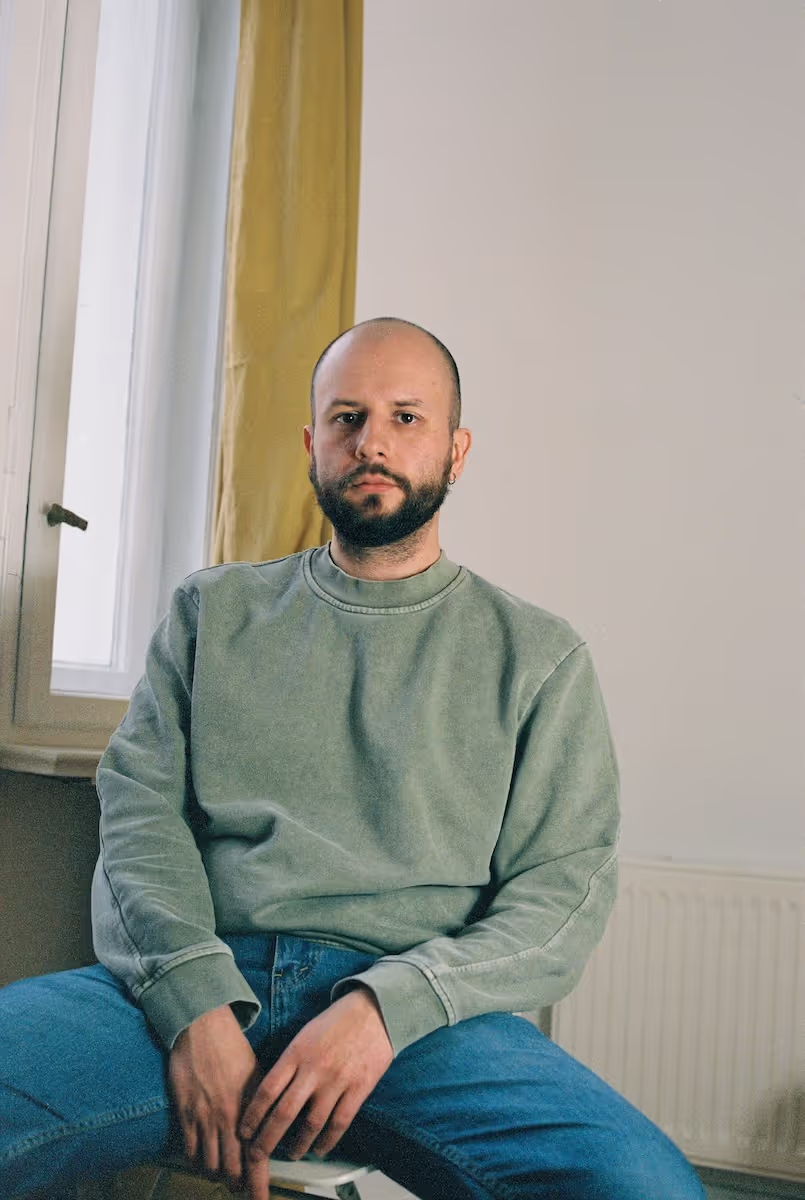
Anton Shebetko (he/him) is a Ukrainian artist, photographer, curator, and writer from Kyiv, currently based in Amsterdam. His practice focuses on LGBTQIA+ experiences in Ukraine, themes of memory, loss of identity, multiplicity of history, and the role that photography and archival materials can play in revealing these stories. Much of his research is dedicated to forgotten and unrecorded queer histories of Ukraine, parts of which were published in his book 'A Very Brief and Subjective Queer History of Ukraine'.
His work has been exhibited internationally, including at FOAM Museum (Amsterdam), Schwules Museum and nGbK am Alex (Berlin), Q21 (Vienna), Photo Elysée (Lausanne), CENTQUATRE-PARIS, BWA Studio (Wroclaw), Württembergischer Kunstverein (Stuttgart), and PinchukArtCentre and Mystetskyi Arsenal (Kyiv). He participated in the Kyiv Biennial (2023) and was a nominee for the PinchukArtPrize (2025). Shebetko has curated exhibitions and film programs for Schwules Museum, Melkweg Expo, and WORM Rotterdam, and has lectured at Maastricht University, Gerrit Rietveld Academie, and Between Bridges Gallery. He holds a BA from Gerrit Rietveld Academie.
Portrait of Anton Shebetko by James Barnett
His work has been exhibited internationally, including at FOAM Museum (Amsterdam), Schwules Museum and nGbK am Alex (Berlin), Q21 (Vienna), Photo Elysée (Lausanne), CENTQUATRE-PARIS, BWA Studio (Wroclaw), Württembergischer Kunstverein (Stuttgart), and PinchukArtCentre and Mystetskyi Arsenal (Kyiv). He participated in the Kyiv Biennial (2023) and was a nominee for the PinchukArtPrize (2025). Shebetko has curated exhibitions and film programs for Schwules Museum, Melkweg Expo, and WORM Rotterdam, and has lectured at Maastricht University, Gerrit Rietveld Academie, and Between Bridges Gallery. He holds a BA from Gerrit Rietveld Academie.
Portrait of Anton Shebetko by James Barnett
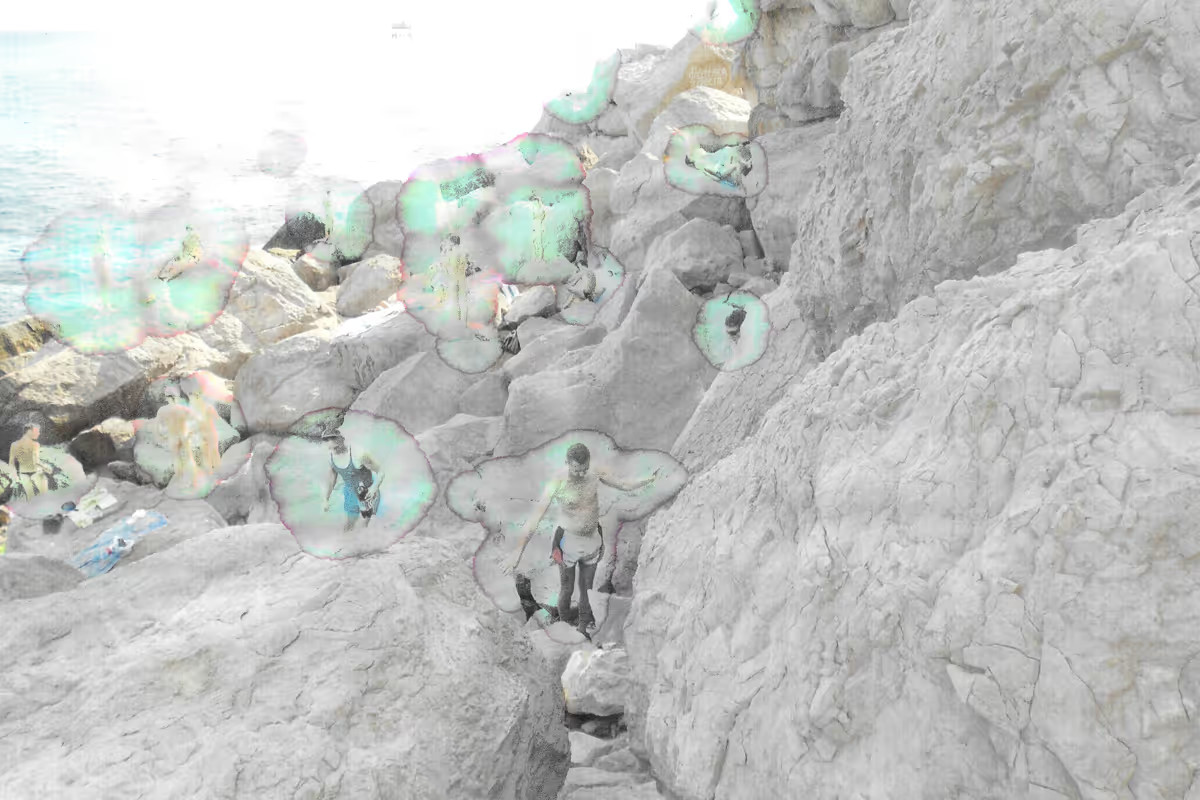
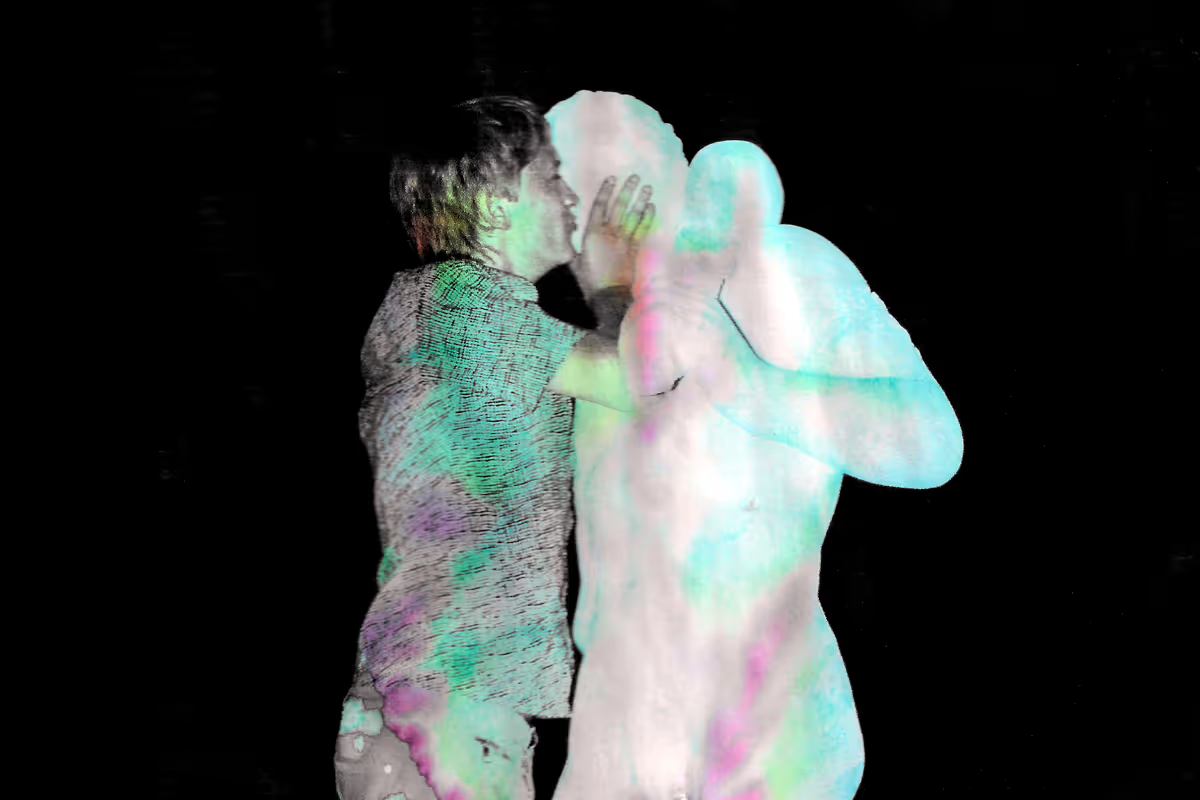
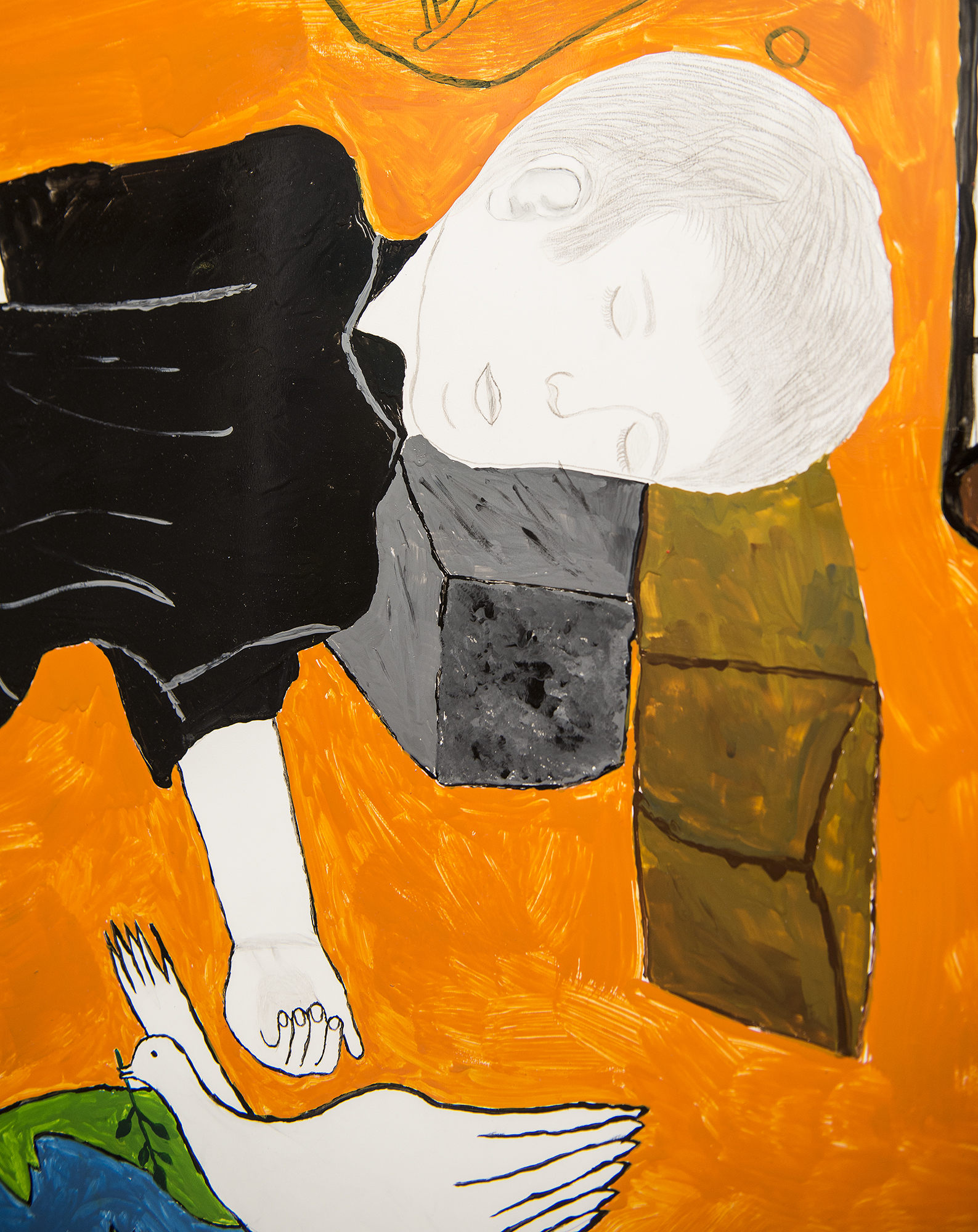
Karolina Gembara is a photographer and researcher whose work revolves around themes such as home, belonging, migration, and practices of care. Much of her recent activity has been devoted to politics and activism. She uses photography and video as tools and pretexts for collaboration, fostering creative processes. In 2013, she published her debut book "Fitting Rooms," which examines the role of women in her generation. Between 2009 and 2016, Karolina was based in India, where she produced her second book "When We Lie Down, Grasses Grow From Us," exploring the migratory experience (published by GOST Books in 2019). She is an editor of several Strike Newspapers published by the Archive of Public Protest. In recent years, she has initiated and completed several participatory projects involving refugees, creating spaces for collaboration and self-expression. Karolina is currently working on her Ph.D. dissertation (K. Kieślowski Film School), which centers around the subjective narratives of historical migrations. She is a member of Sputnik Photos and the A-P-P


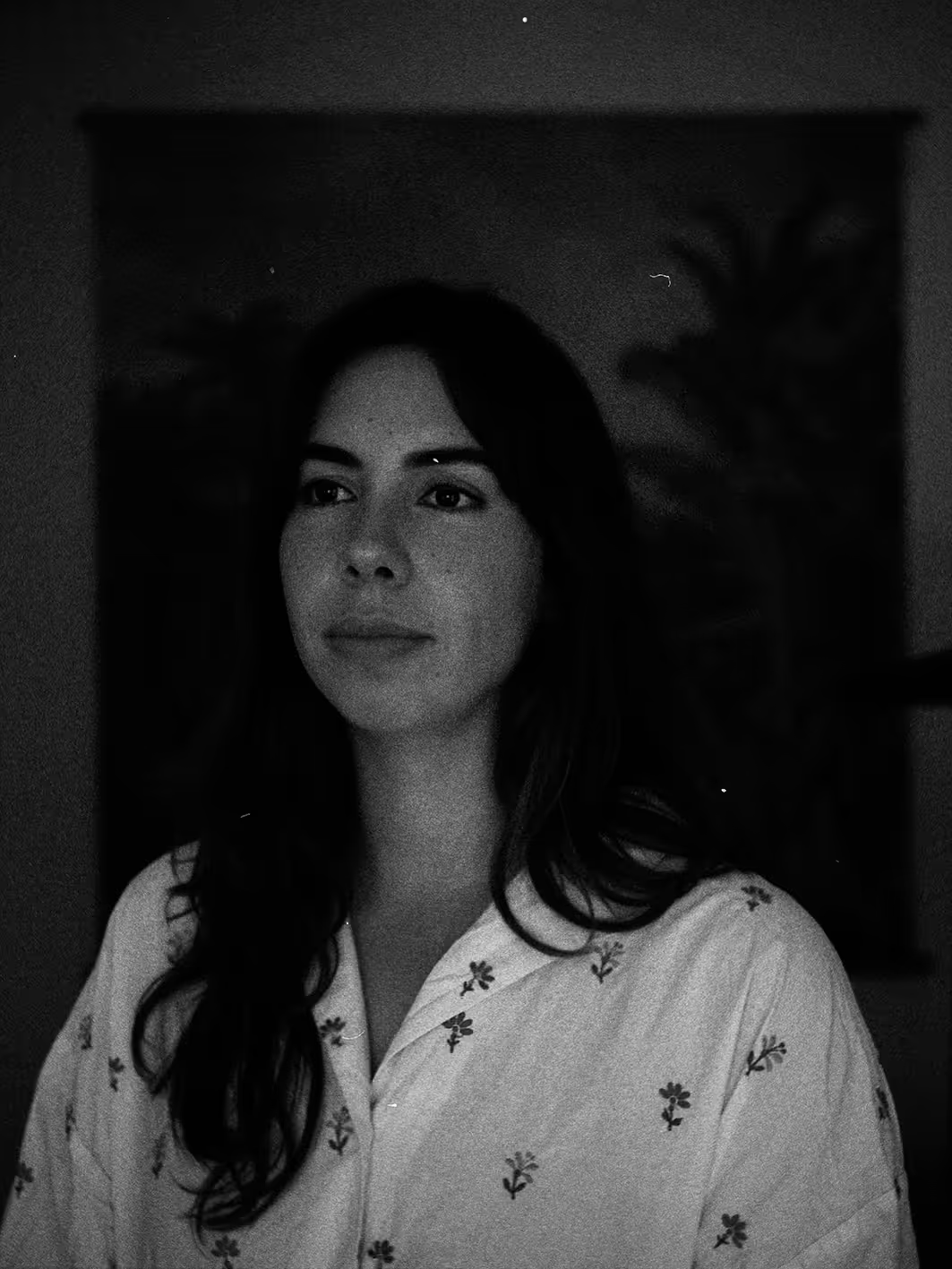
Teresa Freitas (b. 1990) is a Portuguese photographer and colourist. Her work navigates the genres of fine art, documentary and street photography, often exploring the impact of colour in composition, place, mood, and in the viewer's aesthetic response.
Initially drawn to black and white film, Teresa followed her influences from Painting and Cinema to apply a knowledge of colour theory and harmony to develop a signature style which has earned her praise in many publications. She shares this knowledge through international workshops and online courses.
After several years working in commercial photography—with collaborations including Leica, Adobe, and Dior—she is now focused on short and long-term documentary projects. Her current work examines cultural and symbolic relationships to nature, particularly through flowers.


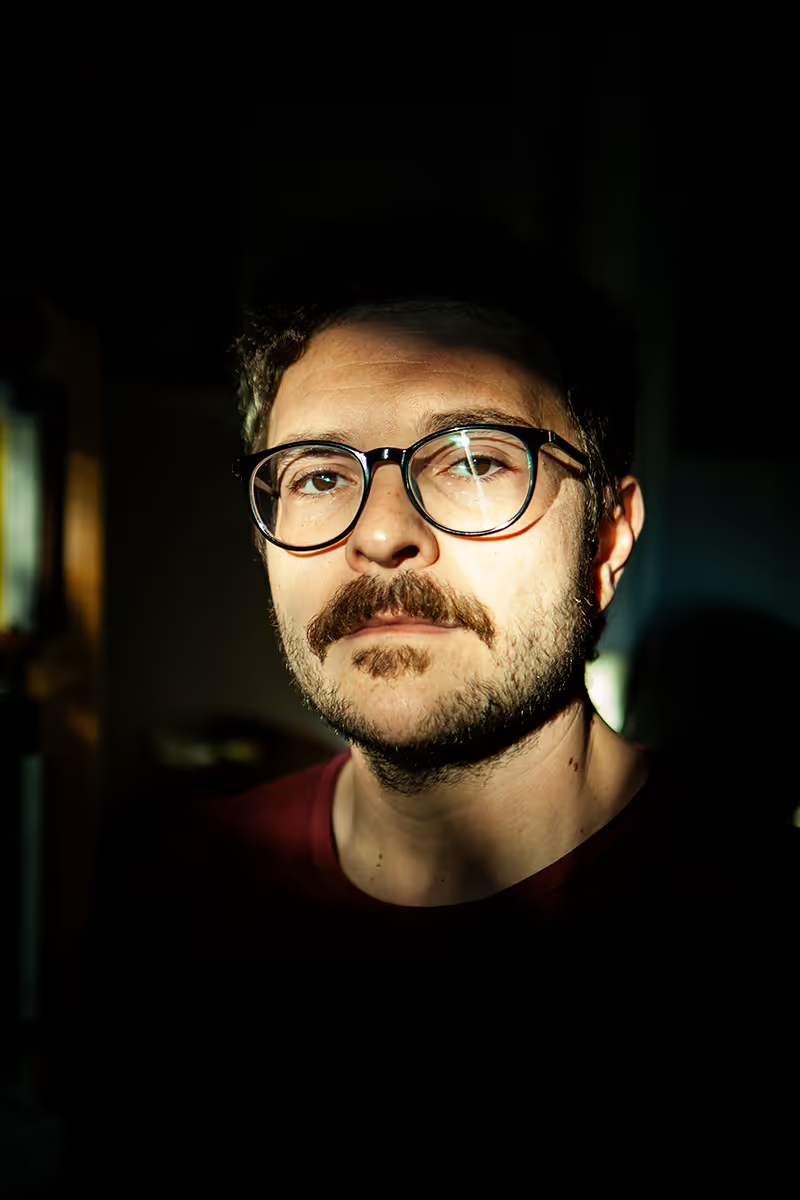
Rafael Roncato (Brazil, 1989) is an interdisciplinary visual artist, editor, and educator working between Brazil and the Netherlands. His practice examines colonial memory, media myths, and the politics of representation, focusing on how images construct belief systems and shape collective perception. Grounded in documentary photography and expanded through archival research, video, and editorial strategies, Roncato develops semi-fictional, non-linear narratives that interrogate contemporary media landscapes and historical power structures.
Inspired by comics, cinema, and Brazilian (post)modernism, his work moves fluidly across formats, from artist books to exhibitions and multimedia projects. He holds a Master’s in Photography and Society from the Royal Academy of Art, The Hague, where he teaches artist bookmaking and visual storytelling and mentors emerging practitioners.
His work has been exhibited internationally, including at the Netherlands Fotomuseum, Noorderlicht International Photo Festival, PhMuseum Days, Les Rencontres de la Photographie d’Arles, Encontros da Imagem, and Schwules Museum Berlin. His photobook Tropical Trauma Misery Tour received the 1st Prize at the Kassel Dummy Award ’23 (GER), the Imaginária Festival Dummy Awards ’23 (BR), and a Special Mention at the Hong Kong Photobook Festival ’23.
Portrait of Rafael Roncato by Gita Cooper van Ingen
Inspired by comics, cinema, and Brazilian (post)modernism, his work moves fluidly across formats, from artist books to exhibitions and multimedia projects. He holds a Master’s in Photography and Society from the Royal Academy of Art, The Hague, where he teaches artist bookmaking and visual storytelling and mentors emerging practitioners.
His work has been exhibited internationally, including at the Netherlands Fotomuseum, Noorderlicht International Photo Festival, PhMuseum Days, Les Rencontres de la Photographie d’Arles, Encontros da Imagem, and Schwules Museum Berlin. His photobook Tropical Trauma Misery Tour received the 1st Prize at the Kassel Dummy Award ’23 (GER), the Imaginária Festival Dummy Awards ’23 (BR), and a Special Mention at the Hong Kong Photobook Festival ’23.
Portrait of Rafael Roncato by Gita Cooper van Ingen
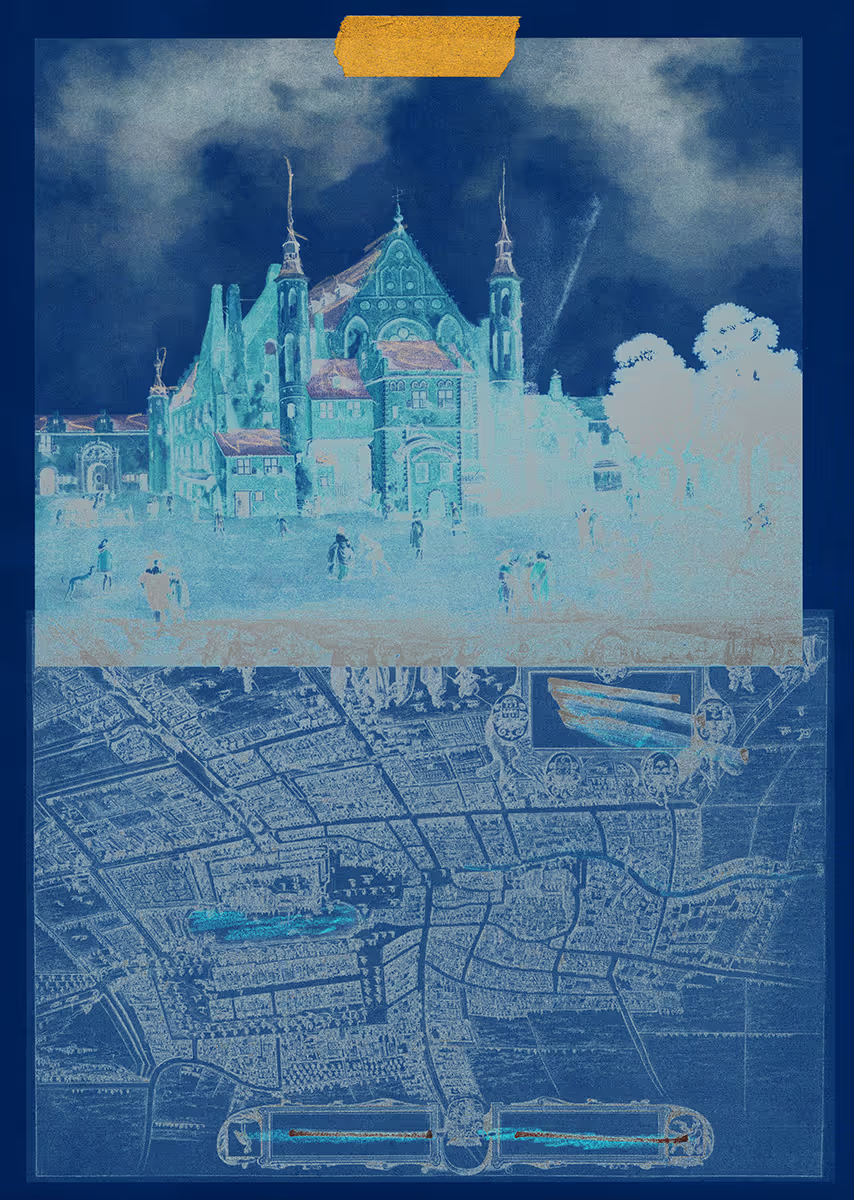
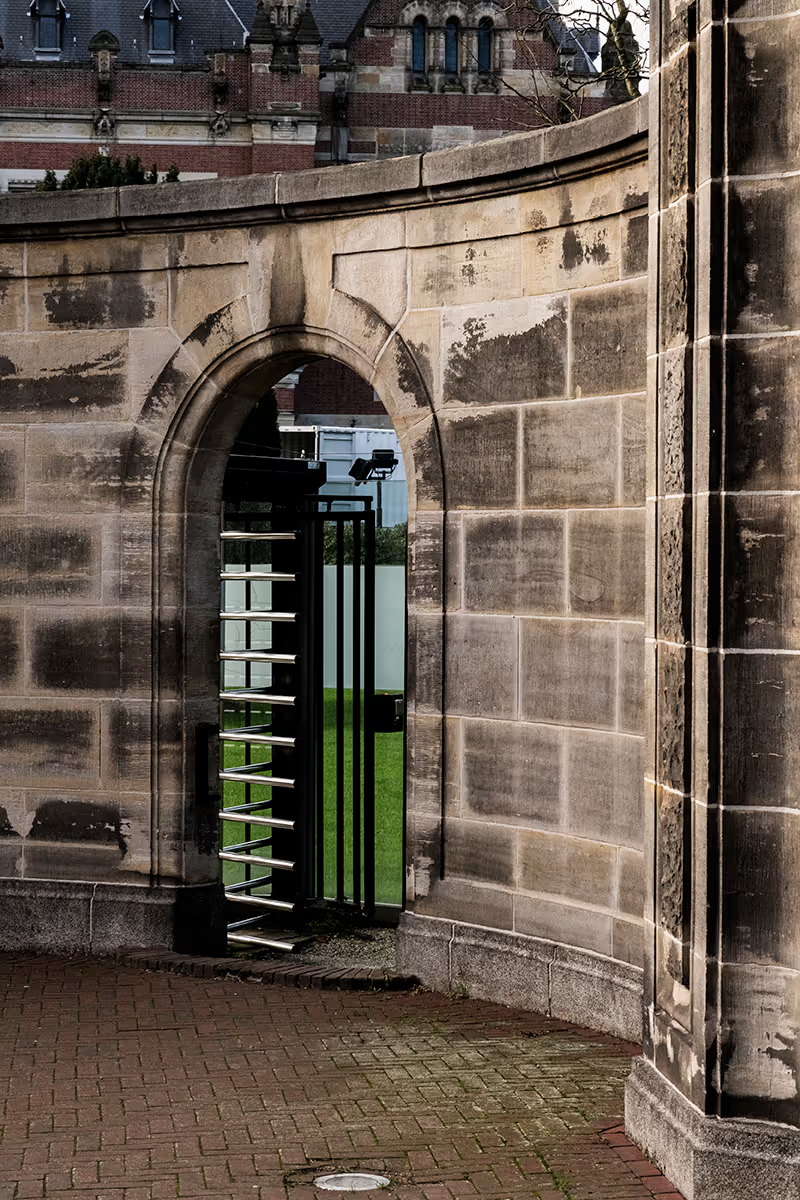
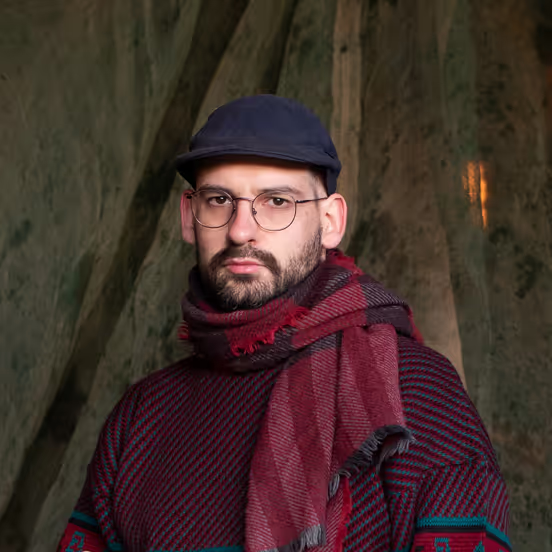
Carlos Trancoso is a Portuguese visual artist that works and lives in Porto. He uses the photographic gaze as a critical tool to understand how the human being relates to technology. His work aims to challenge established patterns of interaction relating to the creation of images in contemporary society. Although he mainly uses fictional approaches, his work incorporates a documental photography language with the expanded practice of creating cameraless images, mixed media and computer generated images. He is a founding member of Barda collective, which utilizes visual arts to foster social cohesion. He has exhibited at festivals such as Photoalicante, Backlight (2020), Photo Open Up, f/est Amarante (2022), Athens Digital Arts Festival (2023), Bienal da Maia (2021/2023) and Bienal de Fotografia do Porto (2025) . His works have also been exhibited in spaces such as Galeria FFAC, Galeria Dentro and MIRA FORUM in Porto, Casa do Capitão and XYZ Books in Lisbon and El Local in Madrid.

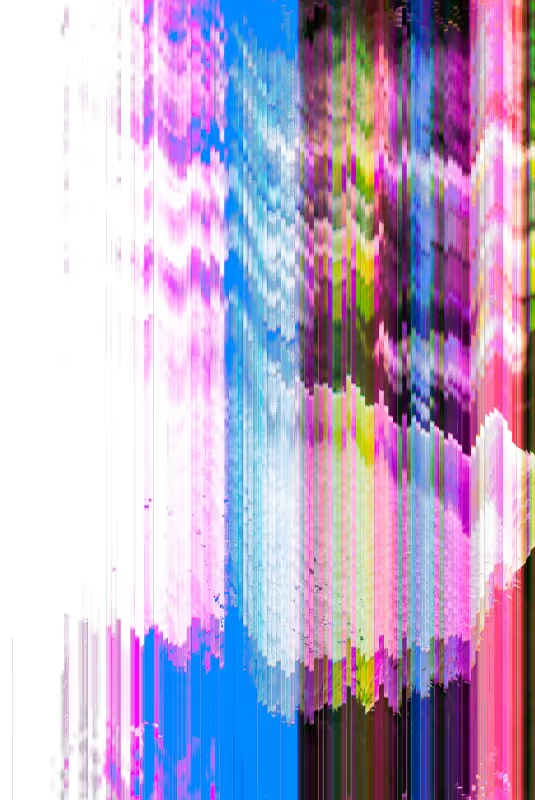
Related professionals
Other professionals that might be interesting
All professionals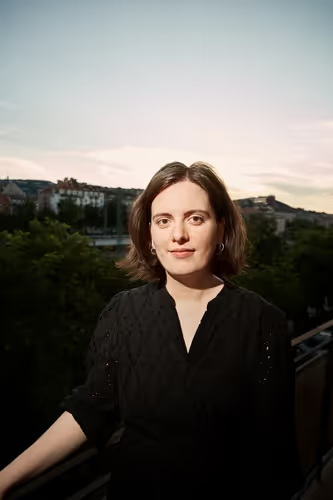
Emese Bíborka Szakács studied at the Institute of Communication and Media Studies at Pázmány Péter Catholic University. She is currently pursuing a degree in Art History at the University of Pécs.
Her interests focus on the past and present of experimental photography, as well as the cultural role of new media. As a staff member of the Robert Capa Contemporary Photography Center, she is involved in organizing international exhibitions and professional programs. She also works as a curator and writer within the frameworks of the Studio of Young Photographers (FFS) and the Studio of Young Artists’ Association (FKSE), contributing to the professional development and realization of several exhibitions in recent years.

Descriptiondd112333
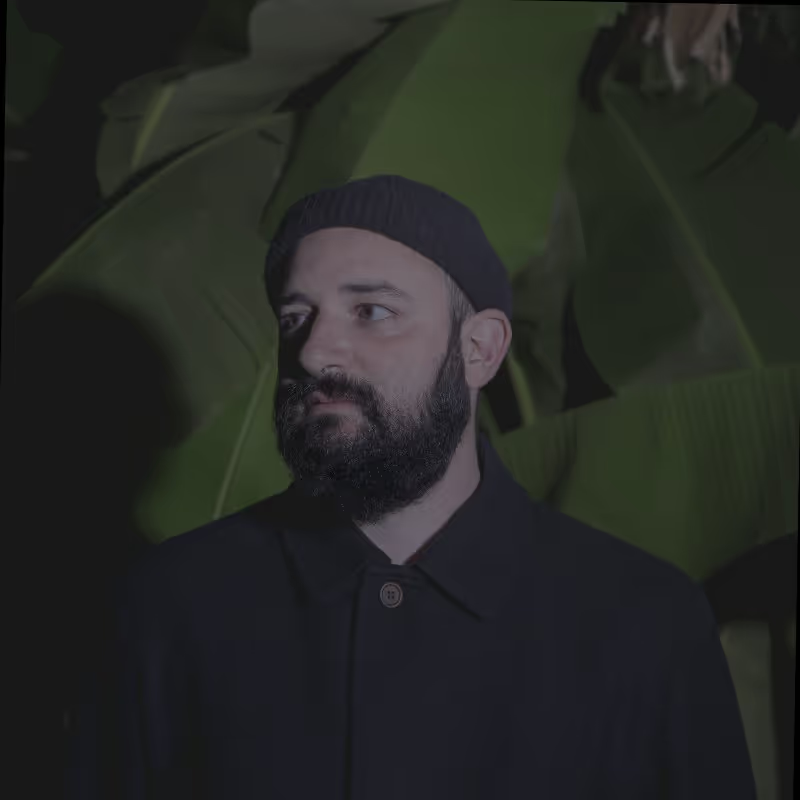
Salvatore Vitale (b. 1986, Palermo, Italy) is a Swiss-based artist, director, and professor whose work explores the complexity of contemporary societies. Using expanded and speculative storytelling through mixed media techniques, he focuses on the politics of systems that regulate modernity and the impact of technological transformations.
Vitale is the Artistic Director of EXPOSED Torino Foto Festival and FUTURES Photography, both international platforms dedicated to contemporary photography. He also serves as a Professor at Lucerne University of Applied Sciences and Arts, where he leads the Transmedia Storytelling Programme. Previously, he was the co-founder and editor-in-chief of YET magazine, an international photography publication.
Vitale’s work has received international awards. It is featured in several public and private collections and has been widely exhibited in museums and at festivals worldwide.
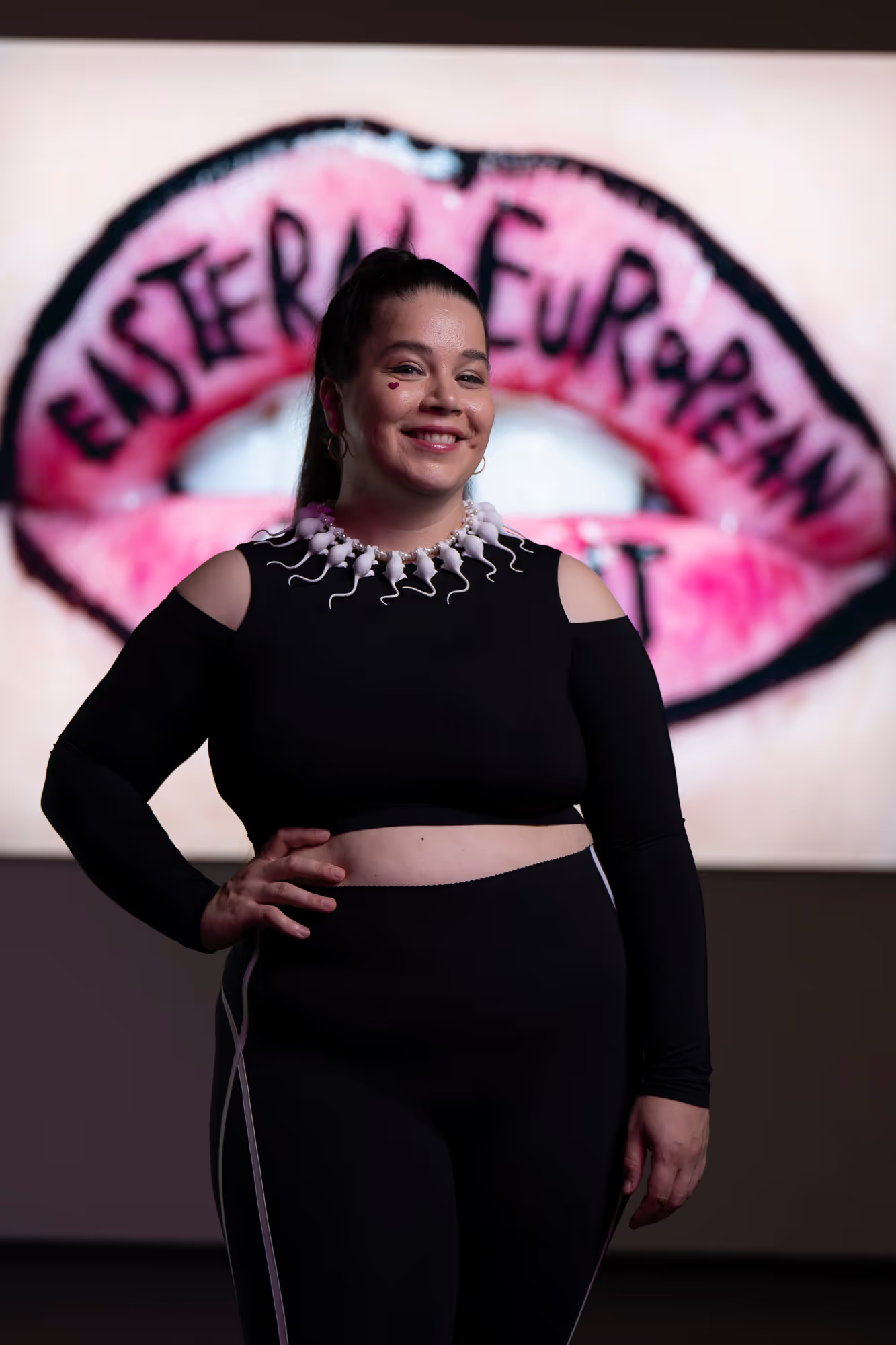
Emese Mucsi is a Hungarian-born curator, and art critic. Emese curates exhibitions where photography is interpreted in the context of contemporary art and works with artists who have an expanded idea of photography and produce photo-based works. Her projects bring together artists and photographers with photojournalists, writers, editors, and other thinkers to experiment with new approaches to photography. She graduated from the Faculty of Contemporary Art Theory and Curatorial Studies at the Hungarian University of Fine Arts in 2013, and from the Faculty of Hungarian Literature and Linguistics at the University of Szeged in 2017. She is a member of the curators’ collective BÜRO imaginaire since 2012. Since 2013, she ran projects as a freelance curator. From 2014 to 2018, she was the Editor-in-Chief of Artmagazin Online. Emese is a curator of the Robert Capa Contemporary Photography Center, Budapest since 2018. She is the member of Global Photographies Network since 2020. She founded DOXA exhibition space and editorial den in 2022. She is doing her PhD in the Film, Media, and Contemporary Culture PhD program at Eötvös Loránd University. Emese is a guest lecturer at the Moholy-Nagy University of Art and Design (2023) and the University of Szeged (2024).
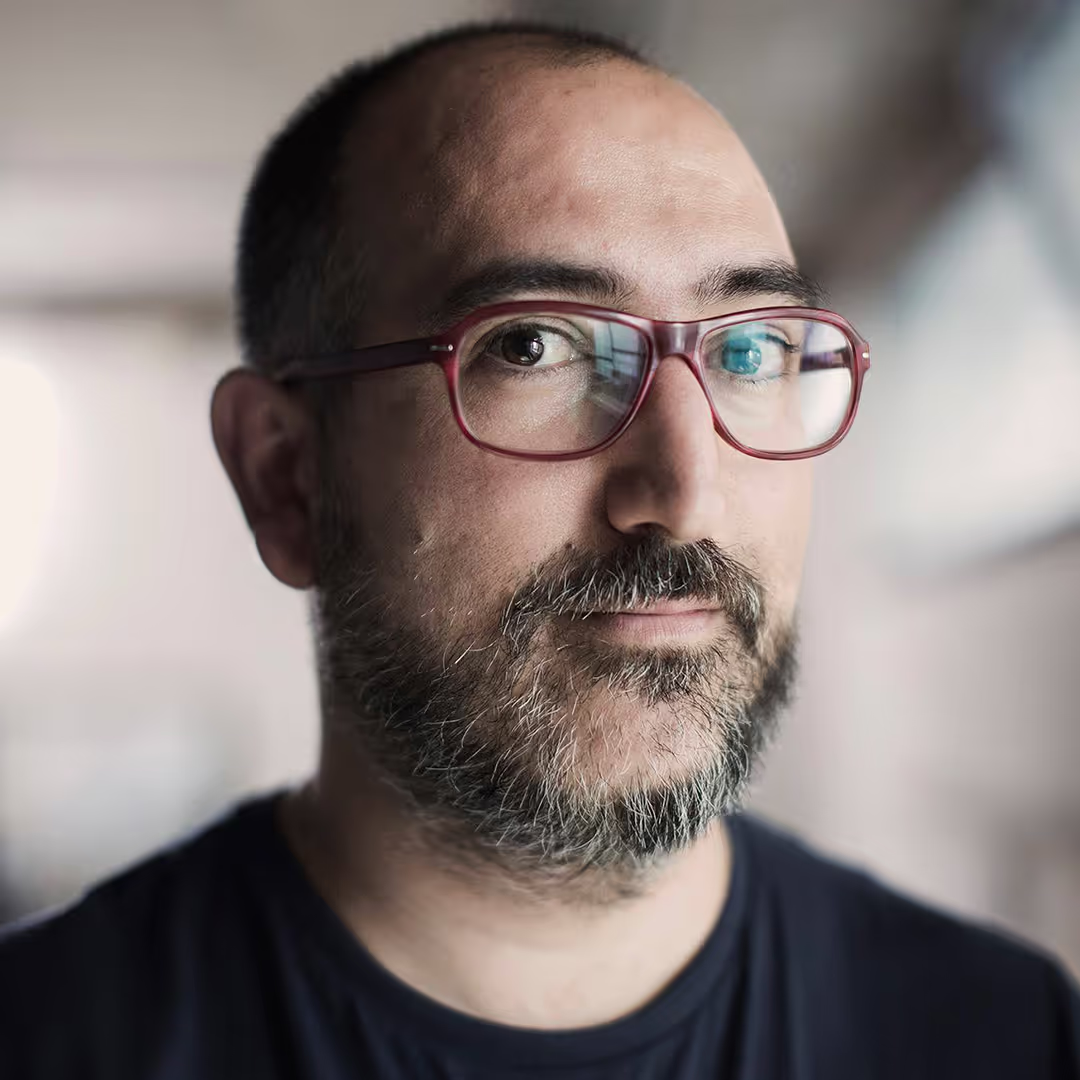
Ángel Luis González Fernández is a designer, artist, and curator supporting engaging visual arts practices, winner of Business to Arts David Manley Emerging Entrepreneur Awards 2011.
His work manifests through PhotoIreland, which he founded in 2010 to stimulate a critical dialogue on Photography. He devises curatorial projects placing conversations in the public realm around visual culture, critical thinking. These include events (PhotoIreland Festival, Halftone Print Fair, arts residency How to Flatten a Mountain, and New Irish Works), a cultural hub (The Library Project: Ireland’s Art bookshop, host to a unique resource library of photobooks and a productive arts programme), publishing projects that distribute inexpensive access to local practices, research projects (Critical Academy: examining contemporary art practices). He works collaboratively with a growing network of organisations, noticeably through ambitious Creative Europe partnerships.
During the Summer 2020 lockdown he launched the critical publication OVER Journal, now distributed globally. He received the Arts Council of Ireland’s Visual Arts Bursary to deepen research on the broad historical and specific artistic context of Photography in Ireland, to curate an ambitious survey exhibition in PhotoIreland Festival 2022 and to publish a series of publications on the matter. He regularly contributes to publications such as the forthcoming The Routledge Companion to Global Photographies, edited by Lucy Soutter, Duncan Wooldridge.
See some of his Graphic and Web Design work in the 100 Design Archive.
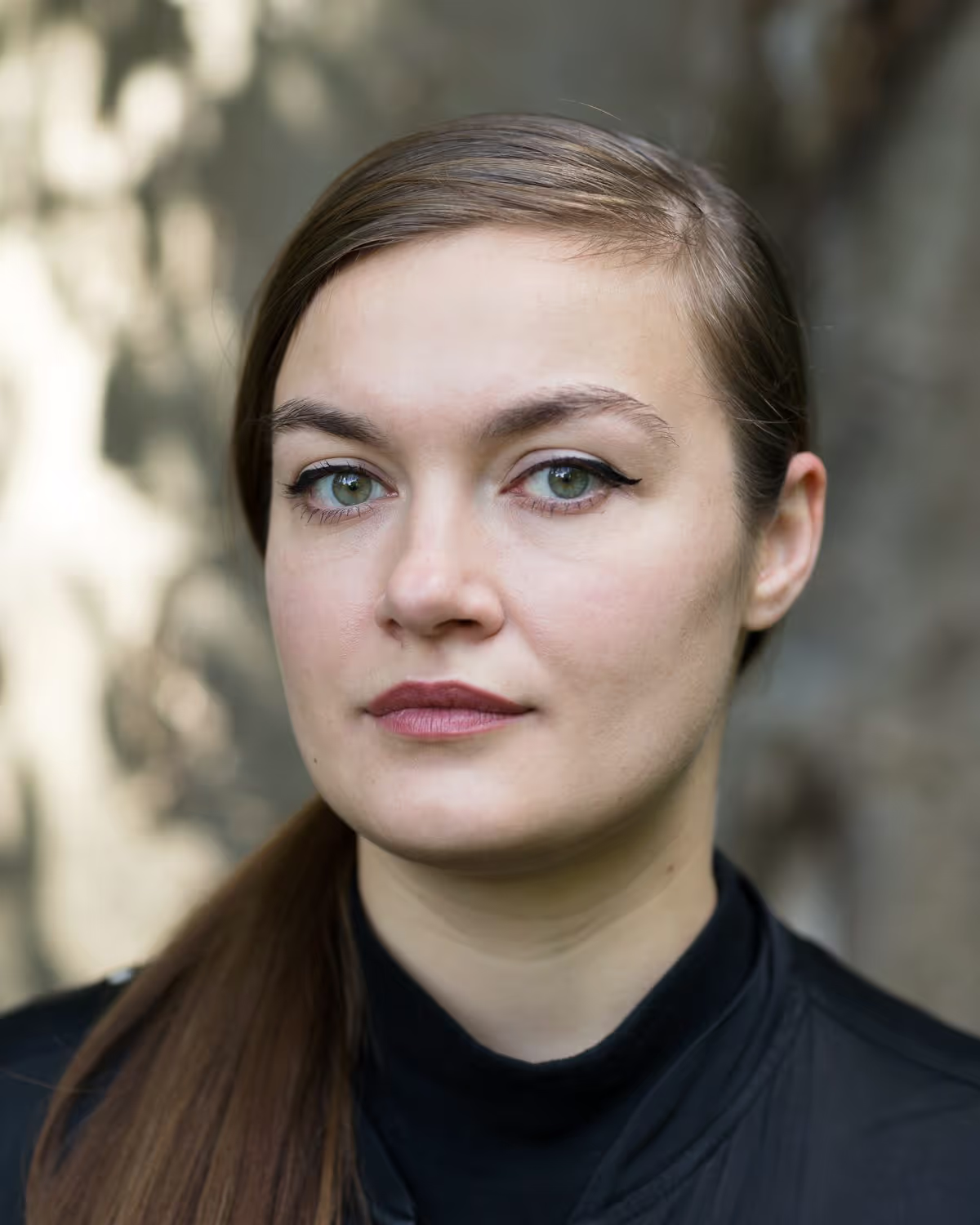
Julia Gelezova is a Cultural Producer and Curator, specialising in contemporary lens-based practices. She is General and Project Manager for PhotoIreland, producing events throughout the year like the annual PhotoIreland Festival and Critical Academy, while collaborating on ambitious projects like Creative Europe Photography Platforms—Parallel and Futures. Julia is co-editor of OVER Journal: The Critical Journal of Photography and Visual Culture for the 21st Century. In 2024, she has founded vicinities.network - a peer network for Visual Arts curators and professionals based in Ireland.
She has ample experience in producing exhibitions and events, including curatorial work and project management, has vast and successful experience in personal and collective application writing for bodies like the Arts Council of Ireland and local councils. She has participated in portfolio reviews, acted as visiting lecturer, and also worked in an editorial capacity and translation for artists and other arts professionals, including work for The Routledge Guide to Photography and Visual Culture. Most recently, she curated the 2021 edition of PhotoIreland Festival and was the Centre Culturel Irlandais cultural producer resident 2022. She is a member of the AICA International Association of Art Critics.
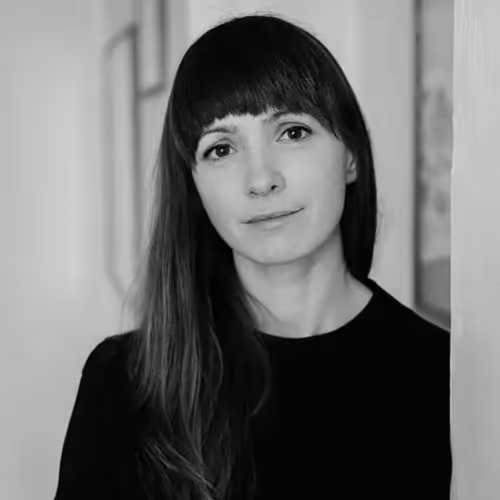
Iveta Gabaliņa (1979) is a curator, artist and educator. She has studied photography at the studio of Andrejs Grants, at Bournemouth Art Institute, and in the MA programme at Alto University in Helsinki. Her work has been exhibited in Latvia and internationally, including at C/O (Berlin, Germany), GESTE (Paris), and Williams Tower Gallery (Houston, USA). Gabaliņa has participated in photography festivals in Singapore, Hanover, and elsewhere. Her work is included in the collections of the Victoria & Albert Museum, Geste Paris, and the Deutsche Börse Art Collection.
Since 2008 she has been part of ISSP team, responsible for numerous educational and curatorial projects. In 2018 she founded ISSP Gallery - an exhibition space dedicated to contemporary photography.
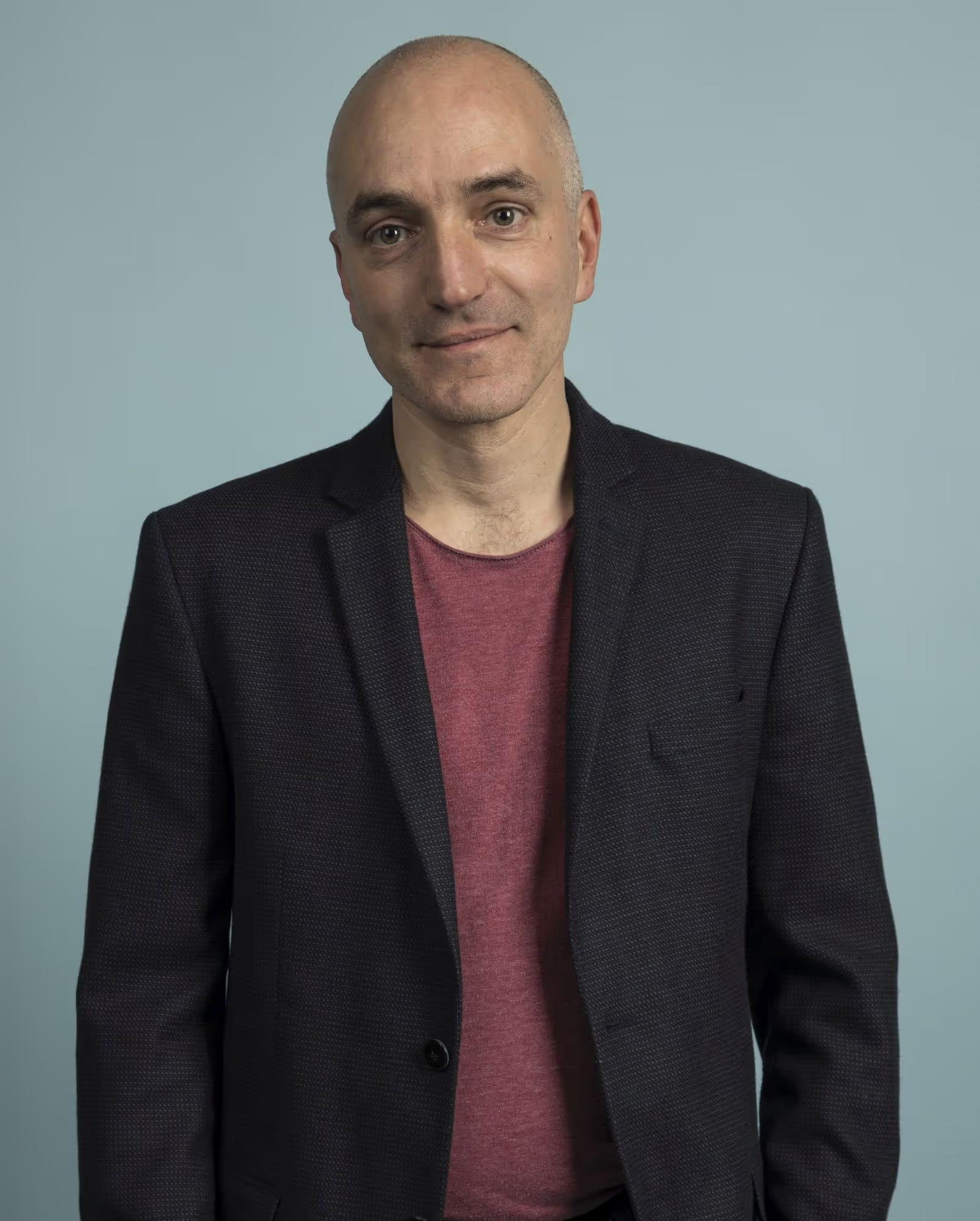
I’ve always loved photography, even if it sounds like a cliche. The first photos I took, I did without knowing how to do that, without paying any attention to framing, subject or composition. After a while, I began to understand what is happening in the space between me as a photographer and the subject I was photographing. And many years later, I also understood why I love to photograph. To communicate. A message, a concept, an emotion.
Newsletter
Want to stay up to date with the latest news and events of FUTURES?
Each month we share articles and interviews, upcoming Open Studios and educational opportunities.
By signing up, you'll join our community of artists and professionals committed to contemporary photography.
By signing up, you'll join our community of artists and professionals committed to contemporary photography.
Thank you! Your submission has been received!
Oops! Something went wrong while submitting the form.
